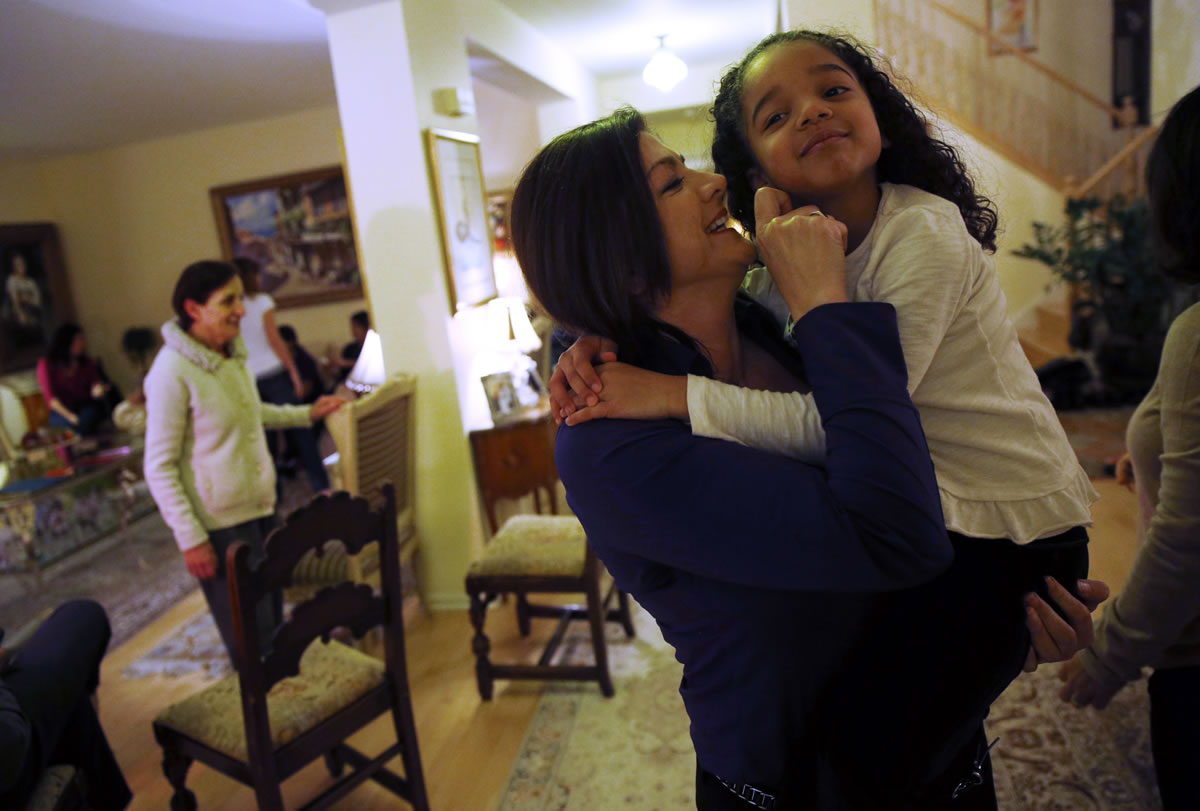CHICAGO — One skinny scar lies just to the side of Minoo Panahi’s left eye from when a Muslim classmate threw a rock at her. Several round spots mark her face — the result of a nervous scratching habit developed after years of stress. An emotional ache lingers decades after her father was murdered, shot in the head when he opened the front door.
The River North resident is one of an estimated hundreds of Chicago Baha’is who share the pain of a persecuted past.
An estimated 12,000 Baha’is have fled Iran for the United States since 1980, making up about 7 percent of 170,000 Baha’is in the country. About 3,000 Baha’is live in the Chicago area, divided into hundreds of microcommunities and holding worship services in their homes.
With language and cultural barriers, the adjustment to Western society can be difficult, Panahi and her sisters said. What’s more difficult is the healing process.
But here in the Chicago area, in a vista so different from their homeland, Baha’i immigrants say they find support, religious freedom and peace in the prayerful folds of their Midwestern communities.
In a spacious house in Northbrook, Manijeh Bayzaee welcomed more than 20 guests into her home on a recent Friday night for a Baha’i devotional service and a modest meal. They read scriptures and played music. The Panahi sisters sat on a decorative couch with their petite 70-year-old mother, Nasrin, who has Alzheimer’s.
“We always question, why has this family been tested so much?” said Bayzaee, who is Nasrin’s cousin. “And we think that there is a purpose.”
When new Baha’is arrive in the area, they are immediately welcomed. An email from the community goes out and, days later, a Baha’i will welcome the family with a U-Haul of furniture, clothes or even a place to stay.
Established families will make home visits and check in by phone, especially with those who have suffered harsh religious persecution in Iran. They also host prayer meetings.
Prayer is central to the community’s support — a familiar comfort to those who have moved thousands of miles from their torn homeland.
At the end of the hourlong service in the Northbrook home, adults and children prayed and sang in English and French. After a period of silence, Dianne Seppelfrick, a longtime friend of the oldest Panahi sister, Mina, recited the prayer of healing from memory. Minoo Panahi cried silently.
“If it wasn’t for the Baha’i faith, I don’t think we would have really been able to process what the whole family has gone through, because it was so traumatic,” Panahi said.
Many of the Baha’is who move here say they do so to leave a restrictive, dangerous and fear-based land. Baha’is believe in the “essential oneness of all world religions,” according to Glen Fullmer, director of communications for the Baha’is of the United States. They believe many prophets such as Muhammad, Jesus and Buddha are legitimate, along with Baha’u’llah — whom Baha’is believe to be the most recent prophet in a cycle of about 1,000 years. But many Baha’is who come from Iran say the government there doesn’t allow them to practice.
“(Iranian government officials) actually don’t recognize the Baha’i faith as a religion,” Panahi said. “So when they find out you’re Baha’i, for them it’s almost like you’re nonexistent.”
Baha’is in Iran cannot attend universities, participate in government or own a business without fear of having it stripped without cause. Seven Baha’i faith leaders have been imprisoned since 2008 and sentenced to 20 years in 2010.
Growing up in a relatively small town in the Iranian province of West Azerbaijan, called Urmia, many people knew Panahi’s father, Habib’u’llah. He owned a large appliance shop and when a customer was in need, he was known to loan appliances, trusting the person to pay him back.
In 1979, an extremist group burned down his store, and at 17, Panahi was shipped off to Carbondale, Ill., where her father knew she’d be safe. She moved in with relatives she barely knew and began attending Southern Illinois University.
Although she learned English grammar at school in Iran, she had no conversational skills at first. No one in her classes at school was Baha’i. They had no idea what she went through in Iran.
Months after she arrived in the United States, Panahi’s father was killed and she returned to Iran briefly.
“I forced myself to be strong,” Panahi said. “I wanted to go back to the house, wanted to see exactly how it had happened.”
She eventually returned to SIU and graduated with a business administration degree. She and her sisters were granted refugee status, and her sisters came to live with her.



